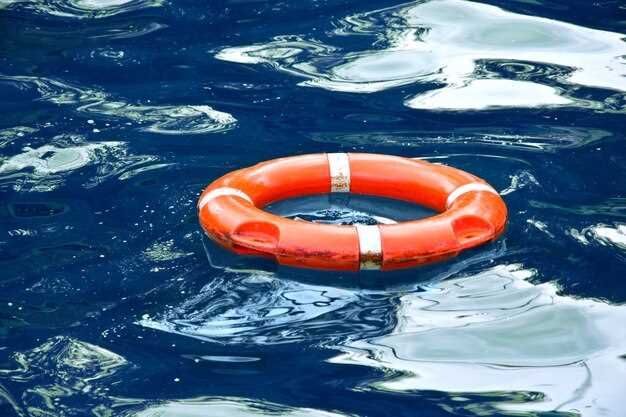
Operating a watercraft while intoxicated poses significant risks not only to the boater but also to passengers and other individuals on the water. Under the law, boating under the influence (BUI) can lead to serious legal repercussions, similar to those associated with driving under the influence (DUIs). The legal definitions and enforcement of BUI laws vary by jurisdiction, but the underlying principle remains the same: safety on the waterways is paramount.
When a person is charged with BUI, the consequences can be severe. Penalties often include hefty fines, suspension of boating privileges, and even imprisonment. Furthermore, a BUI conviction can result in a permanent mark on an individual’s criminal record, affecting future opportunities and personal freedom. It is essential for boat operators to understand that their actions while operating a vessel can lead to legal liabilities comparable to those faced by automobile drivers.
In addition to legal penalties, individuals accused of boating under the influence may also face civil liabilities. Victims of accidents caused by intoxicated boat operators can file lawsuits seeking damages for medical costs, property damage, and pain and suffering. Thus, the ramifications of BUI extend beyond immediate legal consequences, impacting not only the accused but also innocent parties who may be affected by their reckless behavior on the water.
Understanding the Offense of Boating DUI

Boating Under the Influence (BUI) refers to the unlawful operation of a watercraft while impaired by alcohol or drugs. This offense is taken seriously across jurisdictions due to the potential dangers it presents to both the operator and other individuals on or near the water. Just like driving a motor vehicle, operating a boat requires a responsible approach, as impairment can significantly affect a person’s judgment, reaction time, and overall ability to navigate safely.
The specific blood alcohol concentration (BAC) limit for BUI varies by state, but it generally aligns with the legal driving limit of 0.08%. Some states impose stricter regulations, particularly for individuals operating certain types of vessels or for those who have prior offenses. Additionally, the presence of controlled substances can also lead to a BUI charge, regardless of the operator’s BAC.
Enforcement of boating DUI laws often involves law enforcement officers conducting traffic stops on the water, similar to those on roads. Officers may observe erratic behavior, such as weaving or excessive speed, which can prompt them to initiate a stop. Upon approach, if officers suspect impairment, they may administer field sobriety tests or breathalyzer tests to ascertain the operator’s level of intoxication.
Penalties for boating DUI offenses can be severe and vary widely, including fines, loss of boating privileges, mandatory education programs, and possibly jail time. Repeat offenders may face harsher consequences, reflecting the pattern of behavior that jeopardizes public safety on the water. Understanding these laws and their implications is crucial for boat operators, as navigating the consequences of a BUI charge can significantly impact both personal and legal situations.
Penalties and Fines Associated with Boating DUI
Operating a vessel under the influence of alcohol or drugs, commonly referred to as boating DUI, can lead to serious legal consequences. Each state has specific laws that dictate the penalties and fines imposed for such offenses, but certain commonalities exist across jurisdictions.
Fines: One of the primary penalties associated with a boating DUI is a monetary fine. Fines can range significantly depending on the severity of the offense and local regulations. Typically, first-time offenders might face fines from $500 to $1,000. Repeat offenders or those involved in accidents that cause injury or death may face substantially higher fines, sometimes exceeding $5,000.
License Suspension: In addition to fines, a boating DUI conviction often leads to the suspension of the offender’s boating license. The duration of this suspension varies but can last anywhere from a few months to several years. Some states also impose mandatory participation in boating safety courses or alcohol education programs as a condition for reinstatement.
Criminal Charges: A boating DUI can result in criminal charges, which may be classified as misdemeanors or felonies based on the circumstances. Misdemeanor charges generally apply to first-time offenses without aggravating factors, while felonies may involve serious injuries or fatalities resulting from the incident. Conviction of a felony can carry severe penalties, including imprisonment.
Community Service: Many courts may mandate community service as part of the sentencing for a boating DUI. This requirement can range from a few hours to several hundred hours, depending on the severity of the offense and the offender’s history.
Probation: In certain cases, offenders may be placed on probation instead of serving time in jail. During probation, individuals must comply with specific terms set by the court, which might include regular drug testing, counseling sessions, and restrictions on alcohol consumption.
Insurance Consequences: After a boating DUI conviction, individuals may face increased insurance premiums, or they might have difficulty obtaining coverage altogether. Insurance companies often view DUI offenses as high-risk behavior, leading to significant financial repercussions.
It is crucial for individuals to understand the legal ramifications of boating under the influence in order to navigate the complex landscape of laws and penalties associated with DUI offenses. Staying informed about the consequences can help prevent potentially life-altering situations.
Steps to Take After a Boating DUI Arrest

Experiencing a DUI arrest while boating can be a confusing and stressful situation. It is essential to understand the necessary steps to take immediately following the incident to protect your rights and navigate the legal process effectively.
First, remain calm and discreet. Cooperate with law enforcement during the arrest, but remember that you have the right to remain silent. Avoid making any statements that could be used against you later in court.
After being released from custody, gather all relevant information about your arrest. This includes the location, time, and circumstances surrounding the incident, as well as the names and badge numbers of the officers involved. Accurate details can be crucial in building your defense.
Next, consider contacting a lawyer experienced in boating DUI cases. An attorney will help you understand your options, potential penalties, and the best strategies for your defense. Their expert guidance is invaluable in navigating the complexities of the legal system.
Also, review the specific boating laws in your jurisdiction. Regulations regarding DUI offenses on watercraft can differ significantly from those on land. Familiarizing yourself with these laws will better equip you to face your charges.
Attending a court hearing is another critical step. Ensure you arrive on time and adequately prepared. Having your attorney alongside can help present your case effectively. Establishing a responsible attitude during proceedings can positively influence the outcome.
Consider participating in educational or rehabilitation programs voluntarily. Showing a commitment to responsible boating practices and substance use awareness can demonstrate your willingness to change, which may be favorably viewed by the court.
Finally, keep a record of all expenses and paperwork related to your arrest. This documentation can be useful for your attorney and in the event of any further legal actions.



